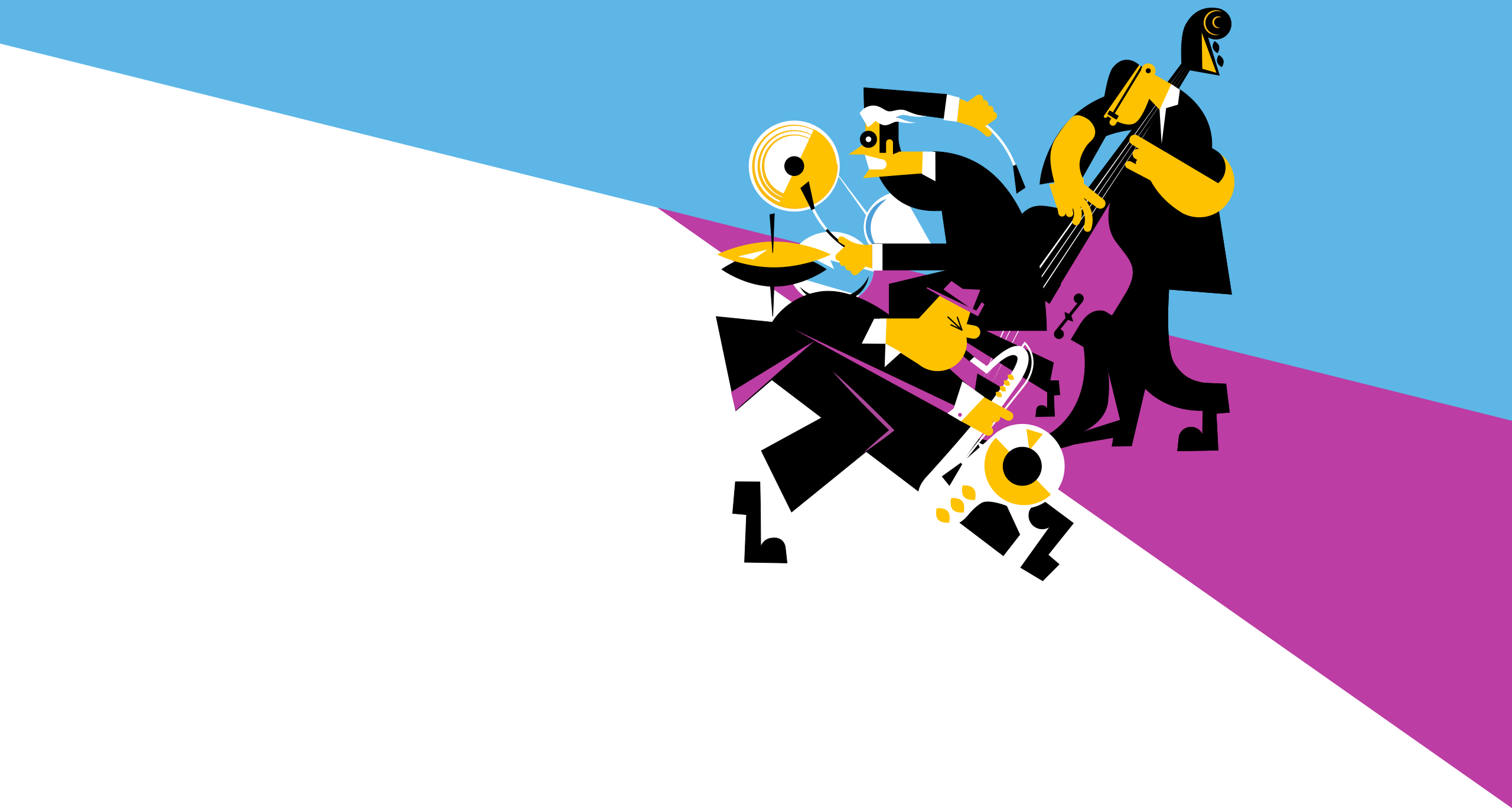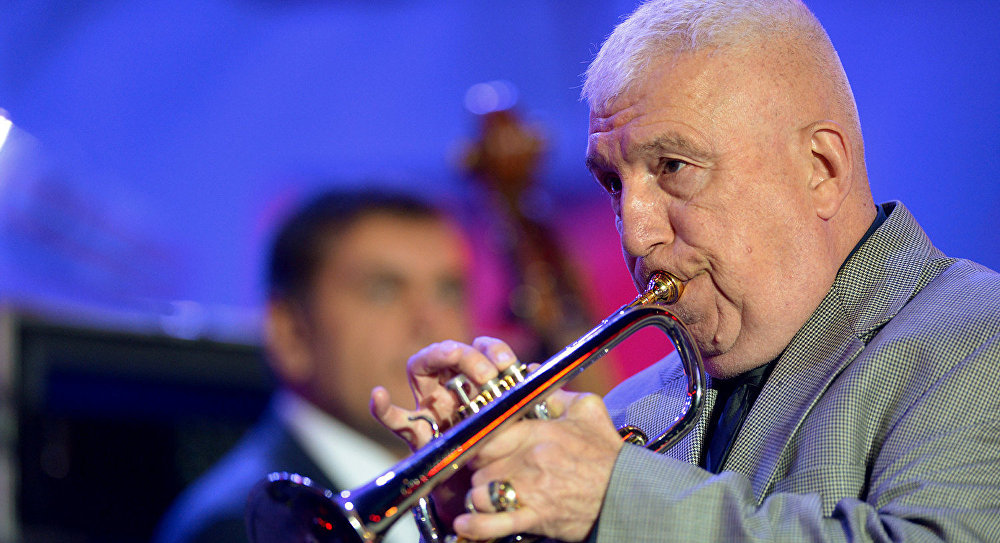When jazz trumpeter Valery Ponomaryov, who will take part in Koktebel Jazz Party 2017, emigrated from the Soviet Union, he knew Clifford Brown, Lee Morgan and Freddie Hubbard trumpet solos by heart. Today, Ponomaryov is considered one of the world's top 10 jazz trumpeters. He has two big bands, one in New York the other in Moscow. In an interview he granted before the Koktebel Jazz Party, the legendary jazzman spoke about the place of jazz in his life and the mission of a jazz messenger.
— You played with the Jazz Messengers of the great jazz drummer Art Blakey for four years. How did it happen?
— The most popular question has always been not how I joined that group, but how I learned to play jazz like that in Moscow. It was pure luck. Art Blakey's group only included African American jazzmen. And then unexpectedly it got not just a White American, but a Russian! It was a sensation. People from all over the world came to listen to me, and they were impressed. They wrote about me that I trumpet as if I'm Harlem grown.
— But why Jazz Messengers?
— I was blown away by the truth, honesty and power of their music. It seems that it is a very hard won victory. Listen to them playing. It's very hard for them, yet they keep telling their truth. Art Blakey was an incredible person. He often said, especially when I only started playing with his band: "Truth is stranger than fiction. If you know the truth, don't be afraid to say it." He also said, very funnily: "Buy our records. God knows we need the money."
— There are portraits of several musicians on the wall in your room. Who are they?
— They are the key to my creative life and my biggest inspiration: Clifford Brown, Charlie Parker, a genius of all time and nations, Lee Morgan, Art Blakey when he was a young man, my grandmothers and grandfathers, and Louis Armstrong. I still have a picture I made as a child. I didn't play the trumpet then, but I saw myself as a trumpeter. As a child, I saw a picture of Louis Armstrong in the America magazine, which stunned me. I could spend whole days looking at it, until I made a picture of it, and I added myself standing next to Louis. You can see that I didn't play the trumpet then, because I didn't even know how to hold it.
— Have you ever met with anyone who inspired you, apart from Art Blakey?
— I have met and played with many of my heroes. But Art Blakey and Jazz Messengers are the biggest diamond in the crown of my life. I later played in the orchestra of my biggest trumpet hero, Clifford Brown. I remember going into a trumpet class on Ordynka and seeing a photo of a pensive Clifford Brown with his trumpet on a pulpit. I saw some boys rehearsing nearby, and I told them: "Hey, I played that trumpet!" They thought I was crazy. But I told them the truth. Who would believe that a boy emigrated from the Soviet Union just because he wanted to play in the best jazz band in the world?
— Did you meet Joseph Brodsky? I am asking because both of you emigrated almost at the same time.
— Yes, I met him, a couple of times. I had a friend, also a Russian-born guy, who lived in a different state where he owned a car repair shop and a filling station. Once, I took my car to his garage and saw a man sitting there. My friend told me: "Valery, meet Brodsky." This is how I met Brodsky. He was a modest man, who didn't expect any special favors. We later met again. I also know Mikhail Baryshnikov, but only slightly. I also met with Yevtushenko.
— You teach now, carrying on after Blakey. What do you tell your students about jazz?
— I tell them that music is like a language, which keeps changing. Playing a trumpet and speaking are the same. I am happy to be able to share my experience. I touched magic, and I am happy to tell other people about this. Frankly speaking, students are completely different now. You can open your ears and listen to what they have to say.
— Can you learn to play real jazz in Russia now?
— Yes, definitely. Russia has brilliant musicians. By the way, the quintet with which I will be playing at the festival is made up of such musicians. Take the incredibly good drummer Pavel Timofeyev. There were no drummers in Russia before, but now there are real jazz drummers. Pavel is one of them. Vladimir Koltsov-Krutov is a superior double bass player. Piano player Rodion Goborov and sax player Sergei Golovnya are world class musicians — not that I don't admire the previous generation of our musicians. There have always been many talented people, but they never had a chance to get to such a superior level.
— You said once that the global jazz center is moving to Russia. What makes you think so?
— Because Russia is importing jazz at a fast rate now. This is not happening in any other country. It sometimes seems that there is more jazz in Russia than in New York City. Of course, jazz is an American invention, but it has spread around the world as a free gift. Wherever jazz is played, people stop, listen and enjoy. Art Blakey used to say that music has a strong impression on listeners, and that it removes the cover from their souls. Our bodies use this cover as protection from everyday life. When you come across real art, the cover slides down and you can see the true colors of everything.
— You played at the Koktebel Jazz Party several years ago. What do you think about it?
— It's a wonderful festival, and so everyone must come here to see it for themselves. When you hear jazz for the first time, your soul unfurls and flies towards jazz music. Interaction between the public and musicians creates a monolithic fusion. Saying and believing is one thing, but absorbing jazz with every cell in your body is quite another matter. Come and you'll have an incredible experience, a great musical trip to a different world, the world of art. I will take part in your festival as a messenger of jazz, and I will be happy to play for you.

